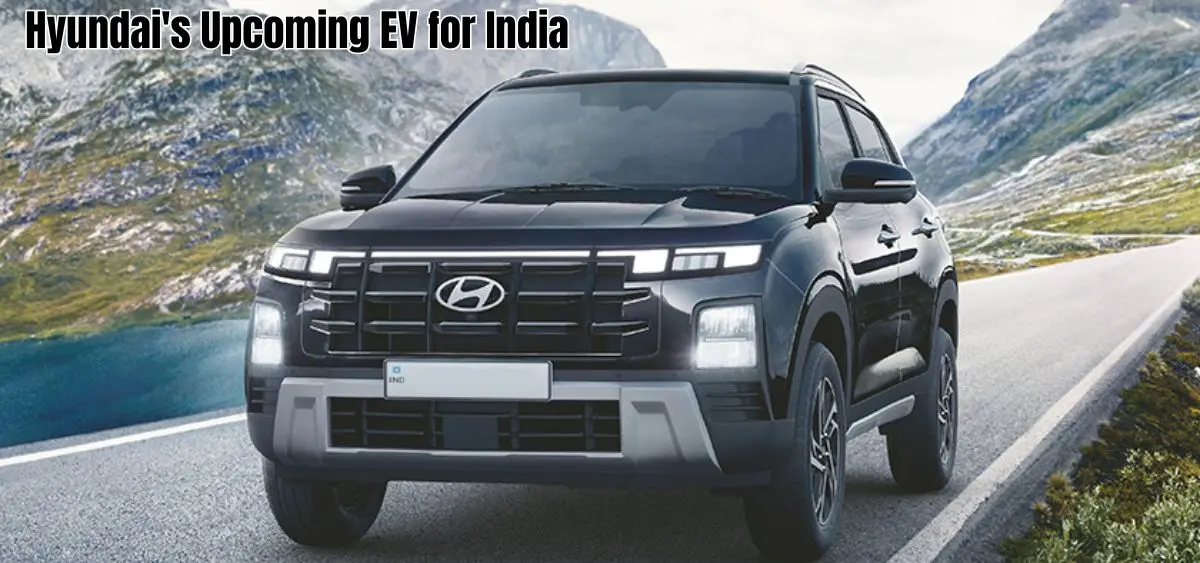The Upcoming Hyundai EV for India promises to redefine the country’s electric mobility landscape. Hyundai is not just entering the EV market—it’s aiming for a high-volume revolution that could make electric vehicles affordable and practical for everyday families. With plans to localize production and offer competitive pricing, this EV could challenge existing players and change buyer expectations. Boasting advanced battery tech and a design inspired by popular Hyundai SUVs, it’s generating buzz even before launch. Curious to know how Hyundai plans to combine innovation, range, and value for the Indian market? Keep reading to discover all the details.
India-Focused EVs: Affordable and Mass-Market Oriented
Hyundai’s upcoming India-specific EV, reportedly codenamed Inster (HE1i), is expected to launch in late 2026 or early 2027. This compact SUV will be based on the all-new E-GMP (K) “born-electric” platform, marking a shift from retrofitting existing ICE models to designing vehicles purely for electric mobility. Positioned below the Creta Electric, the Inster aims for competitive pricing in the ₹10–₹15 lakh range, targeting buyers looking for an affordable yet reliable EV.
Drawing design inspiration from Hyundai’s popular sub-4m SUVs like the Venue and Exter, along with cues from global electric models like Ioniq and Inser Electric, the Inser is expected to offer two battery options and a claimed driving range of over 450 km per charge, making it suitable for both city and highway driving.
Hyundai is also exploring electric versions of other high-volume models:
- Venue EV: To compete with the segment-leading Tata Nexon EV.
- Grand i10 Nios EV: Targeting the compact hatchback segment against models like the Tata Tiago EV.
Strategic Investments and Localisation
Hyundai is heavily investing in India as a strategic EV hub. The company plans to invest ₹20,000 crore over eight years to expand EV manufacturing capabilities, including local battery pack production and potentially even local cell manufacturing. High local content is expected to keep prices competitive while enabling Hyundai to target the mass-market segment effectively.
Beyond manufacturing, Hyundai is building a complete EV ecosystem. Plans are in place to expand its DC fast-charging network to 600 stations by 2032, helping address range anxiety and making EV adoption easier for consumers.
Global and Domestic Context
Globally, Hyundai is pushing multiple EV initiatives:
- Europe: Ioniq 3 will spearhead passenger EV sales.
- China: Production of Elexio SUV and new electric sedans.
- US: Entry into midsize pickup trucks and commercial EVs, including hydrogen fuel cell trucks.
In India, Hyundai’s approach balances affordable EVs for mass adoption with hybrid and petrol options that will continue coexisting in the market. This strategy complements existing launches like the Creta EV, which, while family-oriented, received modest market response due to limited differentiation from the ICE version.
The Road Ahead
By introducing a high-volume, competitively priced EV like the Inster, Hyundai aims to accelerate EV adoption in India, providing customers with practical, reliable, and affordable options. With strong localisation, smart pricing, and a growing charging infrastructure, Hyundai is positioning itself as a key player in India’s electric mobility revolution.
Related Articles:-

